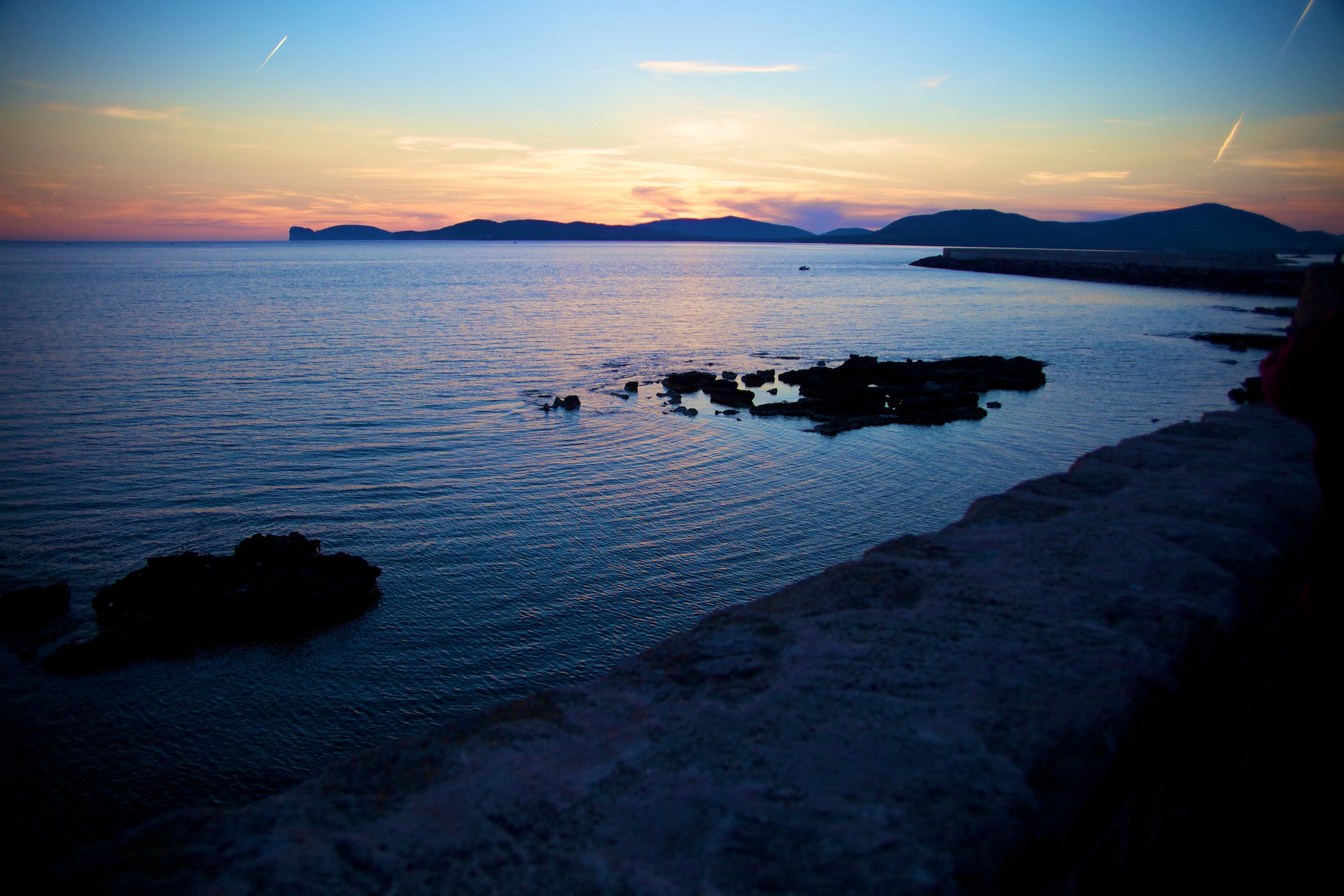Workshops at Capo Caccia 2012
Competition and cortex in Sardinia
29th April, 2012The sea wall in Alghero

The sea wall in Alghero
This year at Capo Caccia we will be talking about how we can analytically decompose simple models of cortex; thinking about how competition in cortex can explain responses to natural stimuli, and discussing the anatomy of competition in cortex.
Neural architectures and algorithms for brain-like processing
In this general workshop session we will discuss the anatomical detail of cortex that is relevant for building models; we will examine physiological evidence for various computational mechanisms for cortex; and we will present several models that try to explain what sorts of computation can be accomplished with cortical networks.
Neural circuits for multi-modal computation
Last year we proposed a simple, anatomically realistic network architecture for competition in columnar visual cortex. We explored how specific connections between excitatory neurons could process visual stimuli with complex stimulus content. The competitive mechanism implemented in the network explained decorrelation between neighbouring neurons in visual cortex, evoked by complex visual stimuli such as natural scenes.
In this workgroup we will extend our simple model in one of several directions (open for discussion, of course). We will begin by exploring how interactions between the central receptive field and the visual surround can be included in the model. We will include an explicit representation of the visual field, so that individual neurons have a defined receptive field location and size in visual space. By setting the functional arrangement of competition appropriately, we will try to explain phenomena such as orientation-tuned surround suppression and sparsening of neural activity in response to surround stimulation.
Our simple model from last year is also ideal for further analysis and implementation. If any participants are interested, work could be done on the analysis of this model. The simple model is also ideal for implementation on spiking hardware, if any workshop participants are looking for an application for their chips.
Mathematical analysis of simple neural networks
Several researchers have been working on the linear analysis of simple network architectures, to explore the conditions that are required for competitive processing (winner-take-all). In this tutorial-style workgroup, we will discuss this analysis method and apply it to several simple networks that are cortically-relevant. You should understand the phrases "linear stability analysis", "Jacobian", "eigenvalue"; and know some calculus. We will use Mathematica to assist in our analysis. This tutorial will probably run for a few sessions only, early in the meeting.
Computation, competition and cortical circuitry
We will continue the intense discussions from previous years of how computational mechanisms and algorithms can be implemented in neural circuits, and to what extent they are relevant to cortical architecture. In the past we have discussed winner-take-all competition heavily as an information-processing mechanism, and we would like to hear what you've been thinking about and working on for the last twelve months. We will discuss the cutting-edge work in WTA implementations, applications and analyses. When can competitive interactions exist in cortex? What computational or information-processing behaviours can they implement? What other computational models are realistic for cortex?
About Capo Caccia
The Capo Caccia cognitive neuromorphic engineering workshop is a two-week meeting, modelled on the successful Telluride workshop. Participants spend each morning in a series of curated discussions covering topics from cognition, through neurobiology, to neuromorphic engineering. The afternoons are reserved for self-organised projects and discussion groups, which can be proposed by any of the attendees. The flavour of the workshop is very fluid; and by virtue of the secluded location (15 minutes to the nearest town) the workshop is very intense! Senior attendees and students spend breakfast, lunch and dinner together — a great opportunity to discuss science with very knowledgeable people.